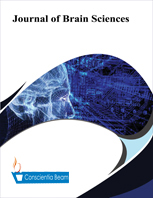Hawaii Dementia Prevention Trial: A Randomized Trial Evaluating a Multifaceted Nutritional Intervention to Slow Cognitive Decline in Mild Cognitive Impairment Patients
DOI:
https://doi.org/10.18488/journal.83.2018.21.1.12Abstract
Introduction: Alzheimer's disease (AD) has no effective treatment, nor does its “precursor” mild cognitive impairment (MCI). Methods: This is a nine-month, randomized, open, pilot trial. We are using four dietary changes and twelve supplements to slow progression of dementia in patients with MCI. Patients were randomly assigned to the diet-plus-supplement intervention group (1) or to the supplement intervention group (2). Supplementary cobalamin, folate, and S-adenosylmethionine (SAM) may reduce secretase/amyloid production. Antioxidants coenzyme Q10, ascorbates, gamma-tocopherol, and extracts of ginkgo biloba and centella asiatica were used. Zinc, copper, manganese, and selenium support endogenous antioxidant enzymes. Dietary interventions include berries, walnuts, decreasing dietary advanced glycation endproduct intake, and limiting saturated fatty acids to seven percent of calories. Results: In this small pilot study, it was surprising that participants in the supplement-only group improved more than in the supplement-plus-diet group. The Mini Mental State Examination (MMSE) was administered at baseline and every 3 months. While 9.6% of MCI patients normally degenerate to dementia each year, over nine months, participants in the supplement-only group had an average improvement in the MMSE of 10 points (out of 30 points). At the end of the intervention, average score was 29 out of 30 points, indicating a normal cognitive state. In the food-plus-supplement group no degeneration was seen, although improvement was also not seen. Conclusions: This multifaceted nutritional intervention had a positive impact by slowing the progression of dementia and reducing the risk of Alzheimer’s disease. A larger, multicenter trial is needed to confirm these results.

